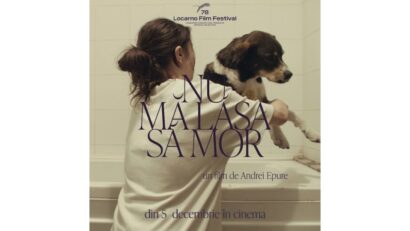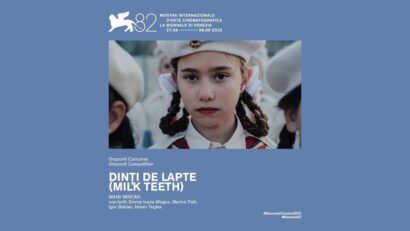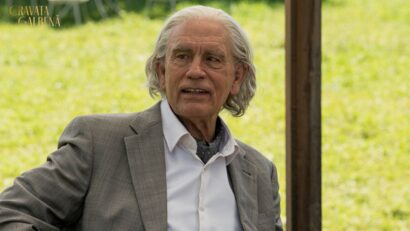Cabbage, Potatoes and Other Demons. 10 years later
Șerban Georgescu returned to Lungulețu to produce a sequel to his 2015 film.

Corina Sabău, 23.08.2025, 14:00
In 2015, director Șerban Georgescu embarked on an unprecedented foray into the local rural reality, which resulted in a documentary that was very successful: “Cabbage, Potatoes and Other Demons”. The film follows the efforts of villagers in a settlement near Bucharest, Lungulețu, struggling to break a vicious circle that benefited no one. In short, 1 village, 1,000 tractors, 100,000 tons of cabbage, but 0 profit. To document the situation, the director himself spent a year in Lungulețu, worked a piece of land side by side with the villagers and tried to sell the harvest. He thus tried to understand why these families end up living on debt, even though they have all the prerequisites for a successful business – fertile farmland, modern machinery, rich harvests. “Cabbage, Potatoes and Other Demons” was very well received by the public, generated echoes within Romanian society and was broadcast in the most varied educational contexts. It was screened not only in film festivals (DOK Leipzig, Docudays UA – Kyiv, Milenium International Documentary Film Festival – Brussels, One World Romania, Transylvania International Film Festival), but also at events such as Harvest Day (Slatina, in the presence of over 1,000 farmers), the launch of the Decade of Family Farms within the UN FAO (Food and Agriculture Organization of the United Nations), as well as in 36 high schools across the country (through the One World Romania at School program).
10 years later, Șerban Georgescu returned to Lungulețu and made a sequel to the documentary, which raises several questions. Did the villagers manage to overcome their lack of trust in any “collective” decision or in any leader? Did they manage to associate themselves so that their voice could be better heard? We asked Șerban Georgescu to share his experience of working side by side with the farmers in Lungulețu.
“It was quite difficult for me to come up with this formula. I didn’t go there knowing that I would stay for a year, I hadn’t set out to do this. In fact, the prospecting phase alone took about four months. Especially since, for this kind of documentary, you don’t find your characters that easily. And even when you do find them, you don’t know how willing those people are to accompany you on this journey for a year or even more, which is a very long time. But during those months, I realized that, in fact, it would make for a more authentic story if I myself got involved, bringing the perspective of a city dweller. And, by the way, that’s how the film begins, I’m in a market in Bucharest, with my mother, and she’s looking to buy vegetables at a lower price. In 2015, when I made the first part of the documentary, there were several markets around Bucharest and you could hear the city dwellers talking discontentedly after seeing the prices displayed by the peasants on the stalls, they seemed too expensive. That’s why I chose to be part of the story, to get involved as a character: to create a bridge between the city and the rural world. I thus had the opportunity to live like these farmers and use my perspective, to tell what it means to grow vegetables, irrigate, harvest, do agricultural work at 40 degrees in the summer, or, on the contrary, at 0 degrees with the arrival of the first frost. And once you harvest, to have to sell the produce and sometimes wait for whole days at the market, which is the wholesale market in Lungulețu, where you get incomparably less than what you invested or even nothing at all”.
The second part of the documentary “Cabbage, Potatoes and Other Demons” is freely available through online streaming. The premiere was also marked in a special event, through a screening in the presence of the team at the Peasant Museum Cinema in Bucharest. Șerban Georgescu’s attempt to return to Lungulețu raises the question of whether Romanian society is capable of deep-seated change, and whether a documentary film has the power to positively influence through its observations.
“A relevant aspect is that the first film, the one released in 2015, was made almost 8 years after Romania joined the European Union. It is clear that the market that opened up at the time caught people working in agriculture unprepared. And it is also difficult to assume that, in just a few years, these people would have managed to adapt to the changes that came with this opening and to the new circumstances. We must remember that this change caught us all by surprise, but, living in the city, we had access to more information. Now, 10 years later, I returned to the same characters in the film. To Nelu Pește, to Vrabie, to George. These are all great characters, a great reflection of the social situation on the ground. I returned to Lungulețu and they all said the same thing, which is evidence that our mindset has changed, although we are living in these turbulent political and social times. They all admitted that, without European funds, they would not have achieved anything. Things have improved and it seems very important to me that people understand and acknowledge this”.
“Cabbage, Potatoes and Other Demons. 10 Years Later” is produced by Kolectiv Film in partnership with UPFAR-ARGOA. (VP)






























